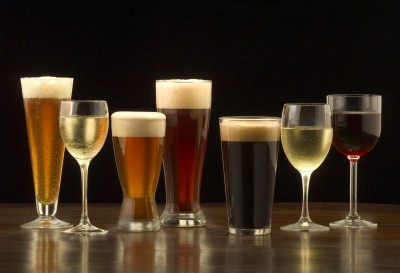Alcohol sold in supermarkets should be taxed more than in pubs, suggests think tank

SMF – a London based non-partisan think tank – explores the case for reforming alcohol duty in the UK, looking at reforms that could be implemented after Brexit.
It says that determining alcohol duty has become highly politicised: and should instead be determined by focusing alcohol taxation where health and social harms are the greatest. It would also seek to encourage the development of lower strength products.
Duty strength escalator
A ‘duty strength escalator’ would focus duty on higher strength products – typically disproportionately consumed by heavy drinkers – and create incentives for manufacturers to lower the alcohol strength of products.
“There is at least tentative evidence that alcohol producers respond to duty changes, by reformulating products,” say researchers. “Carlsberg reduced the strength of its low strength lager, Skol, from 3% to 2.8% ABV, in response to the introduction of a new lower-rate duty band for low strength beers. AB InBev has also reduced the strength of more mainstream brands of beer – including Stella Artois, Budweiser and Becks – as a means of reducing costs associated with alcohol duty.”
Duty by strength, not product
Under the current system, a 6% ABV bottle of wine faces a duty of 50 pence per unit of alcohol, while a 6% ABV cider would have a duty of 7 pence per unit. Beer and spirits duty are taxed according to pure alcohol content, while wine and cider are taxed according to the volume of the final product.
Alcohol duty should be determined solely by the pure alcohol content of drinks, rather than the volume of the final product, suggests the think tank. This would mean, for example, that a 6% ABV beer would have the same duty as a 6% ABV wine (these are currently taxed according to the volume of the end product). This would simplify the alcohol duty system.
Pub Relief
Heavier drinkers are more likely to consume alcohol on the off-trade. Therefore – in line with the policy of focusing duty on where harms are generated – the think tax suggests favouring the on-trade in the tax system.
One option would to be to have a lower duty for kegs compared to bottles or cans; or allow licensed premises to claim back a percentage of duty costs.
Funding health and social care
Alcohol duty should focus on covering the health, crime and welfare costs to government and wider society created by alcohol consumption.
“Alcohol duty should not be treated as a cash cow for government," say researchers.
"The UK public finances are already overly reliant on niche taxes, rather than broad taxes such as income tax and VAT. Reliance on niche taxes makes the public finances inherently more volatile and at risk from factors such as changing consumer preferences. Linking alcohol duty to social harms, rather than as a general tool for revenue raising, could help to improve dialogue between drinks manufacturers, government and health experts.”
Long term certainty
Duty on alcoholic beverages is considered in the Budget every year. Alcoholic beverages go through periods of duty rises, freezes and cuts, with little consideration of the system-wide implications, note researchers.
“Rather than being a highly politicised policy instrument, the general assumption should be that alcohol duty will rise in line with a metric such as inflation or earnings," suggest researchers.
"Consistency in uprating is particularly important given our suggestion that the alcohol duty system should provide compelling incentives to produce lower strength products. Given that product reformulation will require investment and innovation by drinks manufacturers, it is important that they operate in an environment of relative certainty around alcohol taxation, at least in the medium-term – so they can invest with some degree of certainty around future tax policy.
“While we believe inflation or earnings should be the “status quo” form of uprating duty, we this should be complemented with review periods, held perhaps on a five or 10 yearly basis. The purpose of the review period would be to explore the latest evidence base on alcohol-related costs to society, and ensure that alcohol duty tax take is broadly in line with these costs.”
The full report can be found here.








